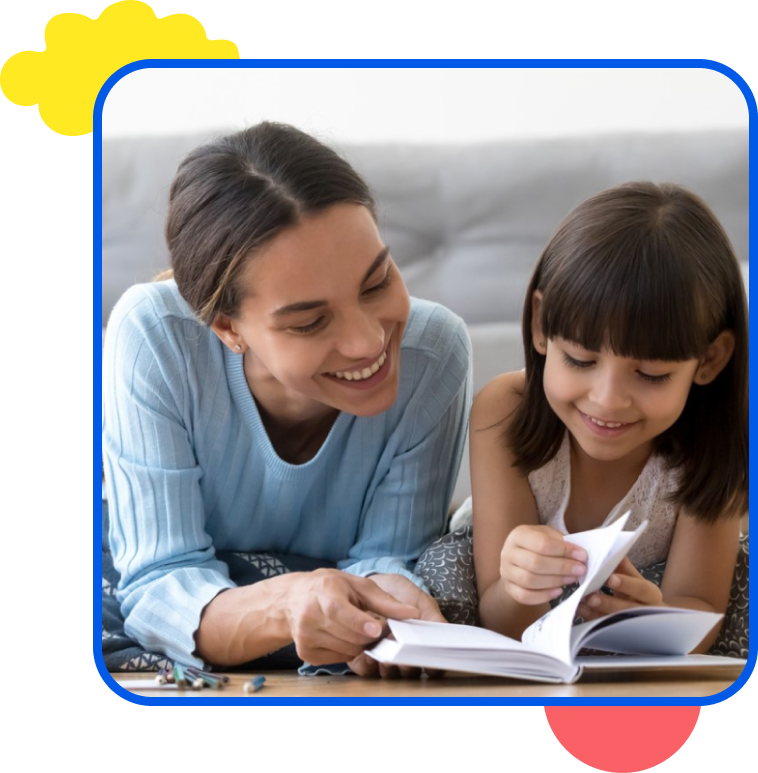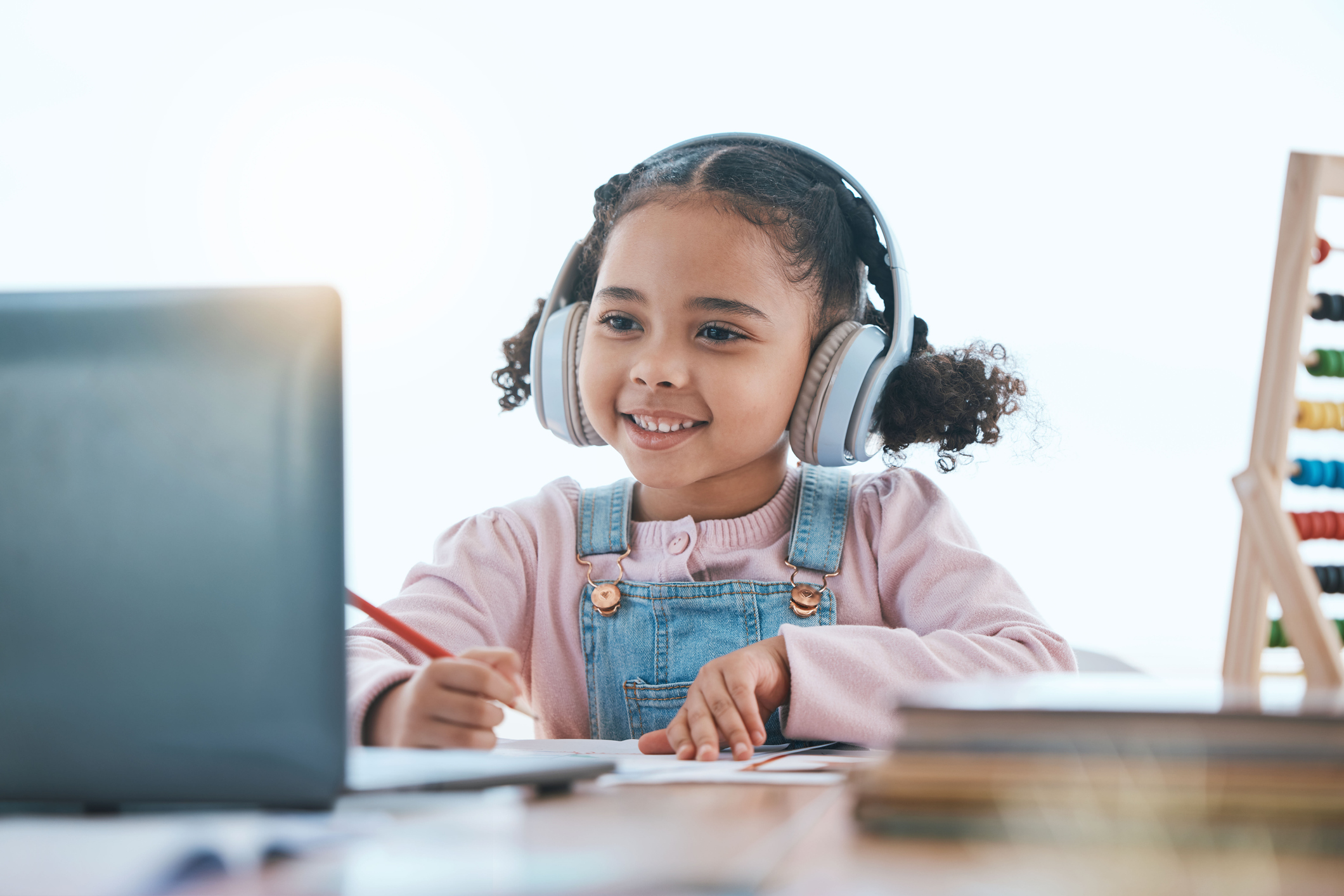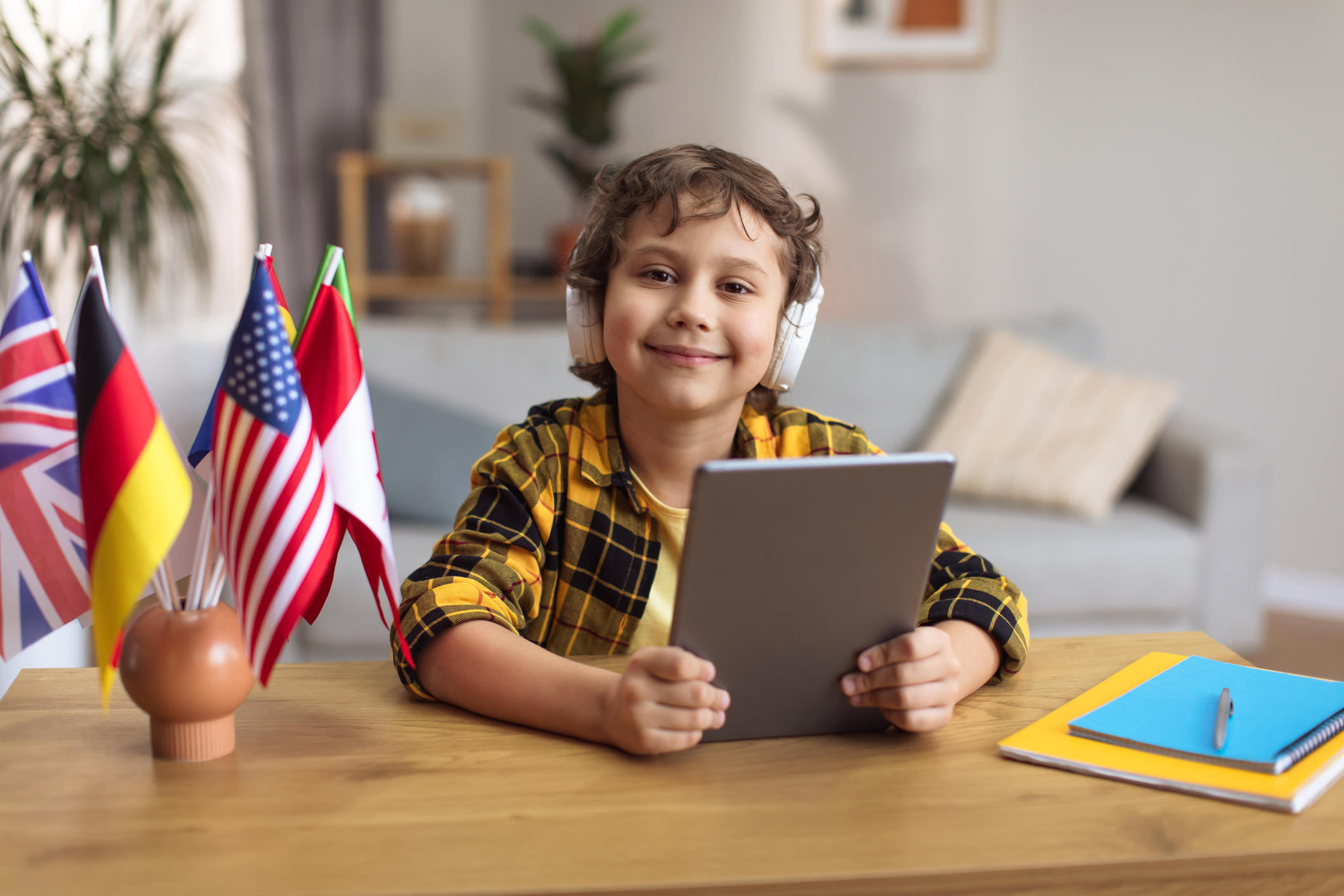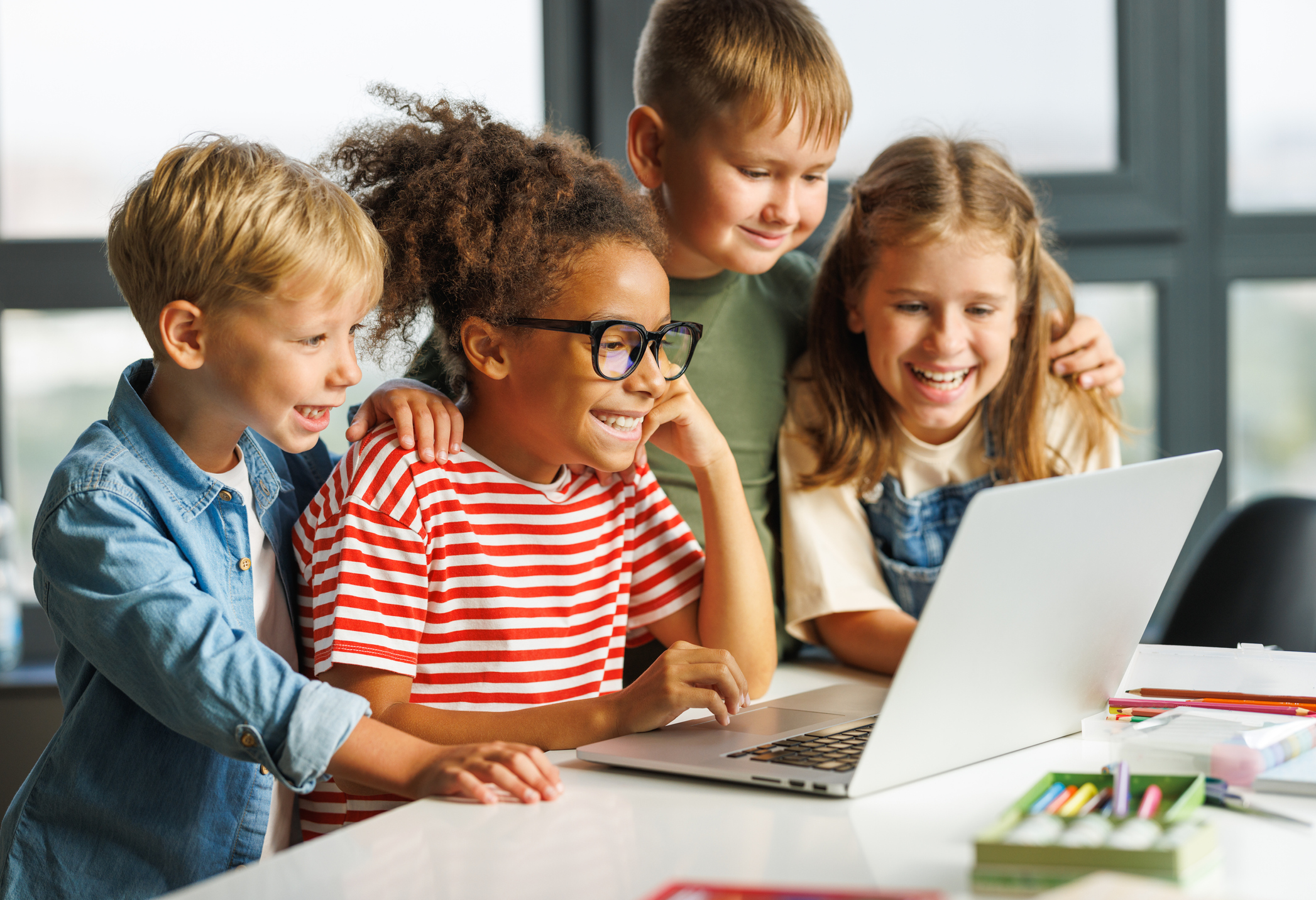The Effects Of Early Bilingualism On Language Development



Early bilingualism is when a child begins learning more than one language at a young age. Learn about the many positive developmental effects of bilingual children.
Children learn and grow in all sorts of different ways. But no matter what, a big part of their development is influenced by their environment.
Therefore, depending on various factors, such as the effort their parents put in, what they watch on TV, or the other children they play with, each child will grow and develop slightly differently from the next.
Similarly, growing up in monolingual and bilingual environments can significantly impact a child’s cognitive and language development, which brings us back to our topic of how bilingualism affects a child’s development.
Are there any differences between the cognitive development of monolingual and bilingual children?
Are there differences in their emotional language development?
And if such differences do exist between monolingual and bilingual children, what causes them?
Below, we hope to answer these questions and more as we explore everything there is to know about early bilingualism and its impact on child development.
What Is Early Bilingualism?
Bilingualism is an individual’s ability to communicate fluently in a language different from their native tongue. “Early bilingualism” is when children begin hearing and learning more than one language at a young age.
Early bilingualism often refers to when an infant hears two languages from birth or at a very young age. However, the term can also describe a child who begins learning a second language later in life, but usually before they reach puberty.
Either way, plenty of research indicates that early bilingualism offers many benefits for children, ranging from increased memory recall and cognitive flexibility to better social skills and communication.
Let’s take a better look!
The Positive Impacts Of Early Bilingualism
In the past, researchers often worried that learning a second language at a young age could negatively affect a child’s native language recognition abilities.
However, modern research suggests that bilingual children have many advantages over monolingual children.
As you’re about to see, bilingual children often score higher on cognitive ability tests, mental flexibility, and phonetic understanding.
Non-Verbal Problem-Solving Skills
According to a study of Scottish and Italian bilingual children, children that spoke more than one language significantly outperformed monolingual children in a series of linguistic, arithmetical, and physical problem-solving tasks.
The study looked at the results from 121 children and found that 62 children scored perceptibly higher than their monolingual counterparts.
In other words, nearly 50% of the bilingual children solved non-verbal problems better.
Creative Thinking, Understanding, And Communication
This same study also found that bilingual children had an increased ability to think creatively, not only in terms of problem-solving but in terms of understanding vocabulary.
According to one of the researchers, Dr. Fraser Lauchlan, an honorary lecturer at Strathclyde’s school of psychological sciences, “there was a marked difference in the level of detail and richness in the description from the bilingual pupils.”
In other words, early bilinguals proved that they could think, understand, and communicate their thoughts and ideas more creatively than monolingual children.
Better Attention And Focus
Furthermore, the study’s results showed that early bilinguals had an aptitude for selective attention.
Selective attention refers to an individual’s ability to process and react to certain stimuli while several stimuli are occurring simultaneously.
This proves that early bilinguals have an enhanced ability to filter incoming information and focus more intently on which stimuli are the most important.
According to the study’s lead researcher, this aptitude comes from a bilingual’s ability to switch back and forth between linguistic codes while thinking.
Enhanced Memory Recall
If all this wasn’t enough to prove that being bilingual benefits children, research also shows that early bilinguals develop better working memory and memory recall capabilities.
Conducted by the University of Granada and the University of York in Toronto, the research looked at a sample of bilingual kids between the ages of five and seven, considered one of the most critical periods for developing working memory.
These children performed better than their monolingual counterparts in various working memory tests and skills assessments.
Researchers concluded that early bilinguals have a better working memory for holding, processing, updating, and recalling cognitive information over short periods.
Working memory has a significant role in the brain’s executive functions, referring to the mental mechanisms involved in the planning and self-regulation of human behavior.
According to Julia Morales Castillo, the study’s lead investigator: “The results of this study suggest that bilingualism does not only improve the working memory in an isolated way, but they affect the global development of executive functions, especially when they have to interact with each other.”
Better Communication And Social Skills
Aside from all the cognitive benefits of early bilingualism, learning a second language will also allow your child to communicate and socialize with others better.
For instance, another study showed that exposure to a multilingual environment promotes more effective communication skills by enhancing a child’s ability to see things from another person’s perspective.
This study followed two groups of children: one group raised in monolingual homes and the other raised in multilingual homes.
Researchers found that children raised in a bilingual environment were considerably better at seeing things from different perspectives. Meanwhile, the children raised in monolingual households often struggled with the same perspective problems and tests.
Being able to understand the perspectives of others goes hand-in-hand with empathy and human compassion, traits that often lead to deeper, more meaningful conversations.
In turn, this affects the way children form and nurture relationships with others.
In other words, bilingual kids have better communication and socialization skills than monolinguals.
Multi-Tasking Skills
Another study looked at the multi-tasking abilities of deaf students who used American Sign Language and written English.
It found that bilinguals proved to be more proficient at multi-tasking than monolingual students. This unique trait stems from a bilingual’s ability to focus selectively on information and prioritize important tasks.
In a bilingual child’s mind, two or more languages are always present in the background. Therefore, their brains constantly switch back and forth, selecting the most appropriate language for the situation at hand.
Similarly, another study funded by the National Institutes of Health found that bilinguals are better at switching between tasks. Researchers looked at testing bilinguals on their ability to engage in three distinct mental processes, defined according to:
- The ability to remember a rule, which looked at working memory
- Inhibition, which studied the individual’s ability to refrain from applying a rule
- And shifting perspectives, which examined the ability to implement a change and apply another rule
According to Peggy McCardle, the study’s lead researcher, “Bilinguals have two sets of language rules in mind, and their brains are wired to toggle back and forth between them depending on the circumstances.”
This type of “switching task” testing is considered a strong indicator of an individual’s multi-tasking abilities.
Factors That Influence The Development Of Early Bilinguals
While there aren’t any adverse effects of bilingualism, it’s crucial to remember that no two children are the same. And that many external environmental factors influence the development of each bilingual child.
For instance, children from different geographic locations might speak any other combination of two or more dialects.
Therefore, the developmental science and individual outcomes of an American child speaking French and English won’t necessarily be the same as a child growing up in Europe who speaks, for example, French and Spanish.
Similarly, a child’s learning environment and exposure level to a new language can also impact their language acquisition and development.
In other words, a child learning two languages in school won’t necessarily achieve the same results as a child learning one language at home from their parents and a second language at school.
That being said, even though early bilingual development impacts each child differently, it’s still safe to say that the good outweighs the bad and that there are many benefits to second language learning at a young age.
The Best Ways To Support Early Bilinguals
Did you know that the population of young bilingual children in the United States has nearly tripled in the past several decades, and now, approximately 25% of all US children speak more than only their native language?
However, despite all of the benefits of being bilingual at a young age, most children who speak two languages don’t receive the proper parental language input patterns to support their early bilingualism.
So what can you do you introduce a second language and support your young dual language learner as they develop?
Aside from teaching your child the importance of bilingualism, it’s crucial to maximize your dual language learner’s exposure to their new language.
Whether you do this by having them use language learning apps, watch bilingual cartoons, listen to bilingual audiobooks, or attend a bilingual preschool, the more they’re exposed to hearing and practicing their new language, the sooner they’ll be able to master it.
Even for parents raising a bilingual child in a monolingual home, there’s no reason you can’t help and support your child as they develop their new vocabulary.
Frequently Asked Questions – Early Bilingualism
Now that we’ve covered how early bilingualism impacts child development, let’s review some of the most frequently asked questions we hear from our language learner’s parents.
Does learning two languages delay speech?
Learning two or more languages at a young age will not delay speech. While there are documented delays in acquiring and perfecting some aspects of language, such as vocabulary, modern research suggests that bilingualism has either no effect or only positive effects on childhood speech-language pathology.
Will early bilingualism harm my child’s speech development?
This is a prevalent misconception, and no, second language acquisition at any age will not harm a child’s speech development. While many erroneously believe that learning two languages simultaneously can be confusing, second language learning has a wide range of positive cognitive benefits for children.
What are early and late bilinguals?
An early bilingual is a child or infant who begins learning a second language at a very young age, sometimes right after birth. On the other hand, a late bilingual is an individual, most often a teenager or adult, who begins second language acquisition later on in life.
What are the different types of bilingualism?
There are three types of bilingualism: compound, coordinate, and subordinate. Compound bilingualism refers to a child growing up with two linguistic codes. Coordinate bilingualism refers to second language acquisition later in life, typically during the teen years. And subordinate bilingualism relates to someone who matures speaking one language but learns a second minority language during their adult years.
The Path To Early Bilingualism – Brooklyn, New York
Whether your child is learning their first words or you’re interested in having them learn a second language, there’s no denying the many facets and benefits of being bilingual.
And the best path to raising a bilingual speaker is through bilingual education.
Here at Bilingual Bebe, we believe every child deserves the opportunity to learn a second language in a fun, interactive, and immersive learning environment.
Although we’re based out of Brooklyn, we serve children globally and are proud to count thousands of certified and engaged teachers in our team.
We offer online language classes for kids aged three to 15, where your child will learn a new language with a small group of other children with the same fluency levels.
Are you interested in enrolling your child in our virtual language learning classes?
Click here to start your trial and get your first lessons for free!


Simple Ways to Learn a Second Language at Home
Get resources and tips to help supplement your bilingual education journey at home.
By providing your email you are signing up to receive emails from Bilingual Bebe. Privacy Policy







